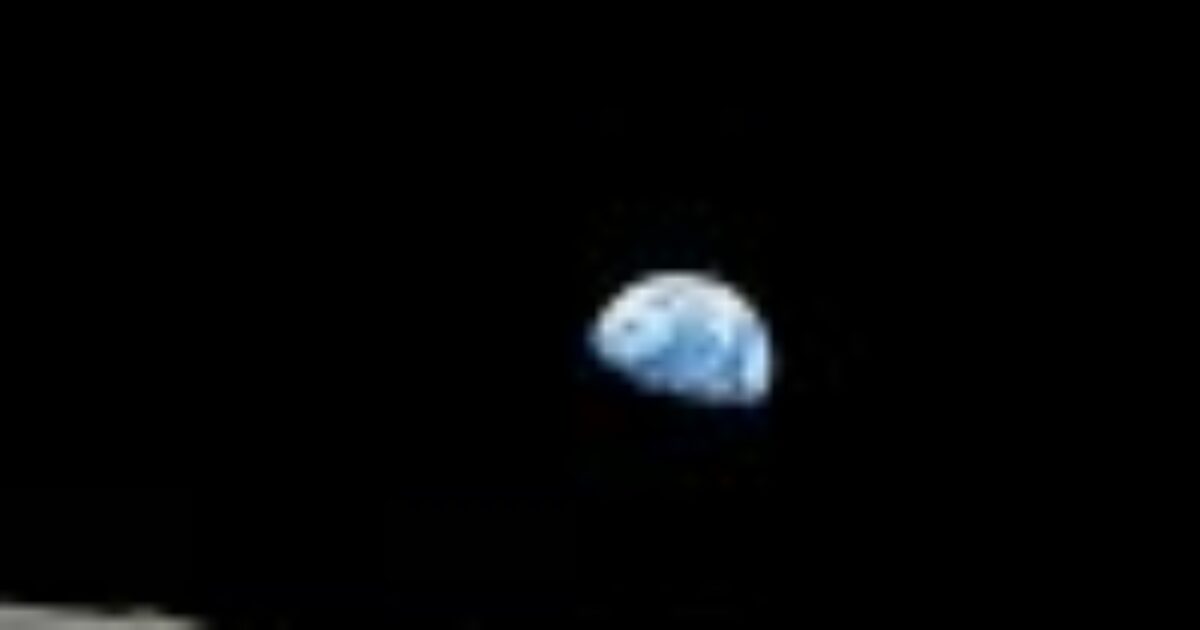The Pale Blue Dot
by Ronald R. Coleman – Guest Opinion, December 21, 2014: In his splendid reflection on the photograph which has come to be known as “The Pale Blue Dot,” astronomer and cosmologist Carl Sagan muses over the apparent insignificance of mankind in the vastness of the universe. He closes with an admirable appeal to cherish our tiny world and to practice kindness and compassion in our dealings with one another. But he perceives no hint of help for us in this endeavor. We are, in his view, all alone.
Those who are familiar with other comments made by Mr. Sagan will know that he does not dismiss the importance of religion in our lives – but he defines religion in such a way as to eliminate what he calls a “sapient” God. God, if there is such a thing, is not a Being interested in human affairs – rather, God is merely an invention of our own imaginations. Religion is just a state of mind, a way for the simple-minded to dupe themselves. (Sagan is not the first well-known scientist to espouse this idea. Einstein expressed a similar view.)
But is it really true that there is “no hint” of a God interested in human affairs?
Mr. Sagan often talked of the “rigorous standards” of evidence. But evidence, in his view as a scientist, included only what he saw in the physical universe. He ultimately dismissed any ideas that did not fit that paradigm (though, oddly, he seemed blind to physical evidence that seems clearly to be pointing to the existence of a greater intelligence). His conclusion that mankind is all alone is thus somewhat understandable, though not necessarily sound.
We are left to ask why this reluctance to even consider what religions refer to variously as the Divine, the Mystery, the Unknowable. After all, Mr. Sagan enthusiastically summoned a vivid imagination predicting other advanced life in our galaxy, as evidenced by his passion for the SETI project, but any mention of intelligence as suggested by any source theological in nature he always attempted to explain away.
What I am about to suggest here is entirely speculation on my part, but fair speculation, I think. So I propose here that perhaps, having witnessed too many deplorable examples of religion, people such as Mr. Sagan simply choose – perhaps even unconsciously – to distance themselves.
Who could blame them? Who could blame anyone? Too much greed, intolerance, and selfish ambition is practiced by men and women who cloak themselves in a mantel of moral authority which they call religion. Those aspiring to higher ideals, observing such religion in action, are in good conscience prevented from taking into consideration the possibility of such a God operating in human affairs. As J. B. Phillips put it, “…many men of goodwill will not consent to such a transaction.”1
But had Mr. Sagan visited a certain Galilean village some twenty centuries ago he might have met a carpenter who was reported to have calmly but unashamedly claimed to be a representative from another realm. If he had heard this Galilean’s impromptu lecture on the side of a mountain describing what real religion is, had the chance to hear him say where he came from and who sent him, to listen to what he had to say about how we should treat each other, perhaps witnessed his anger in reaction to the corruption of the national religion in his time, witnessed his life, death, resurrection and eventual departure – had he had the chance to personally observe all this and much more – I suspect he would have been comforted by this evidence of good will manifested by a divine extraterrestrial intelligence.
Yes, the supernatural, by definition, is something that science so far cannot detect or explain, but this does not mean that that realm does not exist. By failing to accept that some things in our short lives cannot be fully explained – accepting that some mystery is part of our reality – we can unwittingly limit our imaginations. (It is worth noting here that some believers in the Divine, in their unwillingness to adjust their traditional beliefs in spite of scientific evidence that would suggest adjustment is needed, are no less misguided than so called non-believers who deny even the possibility of an intelligent designer in the face of evidence to the contrary.)
Let us do this, at least. Let us accept the fact that some doubt will never be removed completely from our lives – that in fact some doubt is healthy, as it can help guard against both gullibility and arrogance. But doubt which prevents us from allowing certain clues to be even considered is a blind doubt which can unnecessarily limit our vision. In our quests for discovery let us not thus limit our imaginations.
Our earth is indeed a small stage in a vast cosmic arena. But we can take comfort in knowing that One presenting himself nearly two millennia ago as the embodiment of divine power delivered a message of kindness and compassion, enjoining us to follow his example and promising that we would not be alone in the endeavor.
1J. B. Phillips, Your God Is Too Small: A Guide for Believers and Skeptics Alike (New York: Macmillan, 1961), p. 8.
Ron Coleman is a lifelong Seventh-day Adventist church member who is also a senior pilot for United Airlines. He has been flying commercially since 1987 and at present flies the Boeing 787 Dreamliner on international flights. He wrote this blog after conversations with his son about the 2014 COSMOS: A SPACE TIME ODYSSEY series starring Neil deGrasse Tyson that promotes a naturalistic, no god necessary, view of life, based on the earlier writings of Carl Sagan.




